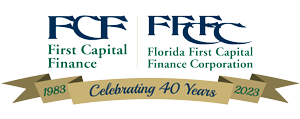- Loan Programs
- News & Media
- Our Story
- Contact Us
SBA 504 Loan Interest Rates
February 2026
25-Year Fixed Rate Standard:
5.80%
25-Year Fixed Rate Refinance:
5.80%
20-Year Fixed Rate Standard:
5.86%
20-Year Fixed Rate Refinance:
5.86%
10-Year Fixed Rate Standard:
5.67%
10-Year Fixed Rate Refinance:
5.67%
Official monthly SBA 504 effective interest rate tables can be found at Eagle Compliance LLC. 25- and 20-year term loans fund every month; 10-year term loans fund every other month. Effective interest rates are inclusive of servicing fees, which are subject to credit risk of the applicant.

 Following is a summary of the 504 Loan Program policy changes:
Following is a summary of the 504 Loan Program policy changes: